Well, p.s.w.g has a great answer, but since I worked on this a little I figured I would post mine as well.
My suggestion is to create a class that encapsulates the data from the string, which can only be instantiated from a static Parse method. This Parse method takes in a string and then parses it, setting the properties of the class as it does, and then returns the instance of the class.
The class also implements IComparable, so we can use the Sort and OrderBy methods on a list of these items.
I also used the same answer for parsing roman numerals that was used above (it's the first result when searching for "roman numeral comparer").
Here's the class:
public class BandLevelComponent : IComparable<BandLevelComponent>
{
public int Major { get; private set; }
public int Minor { get; private set; }
public string Revision { get; private set; }
public string RomanNumeral { get; private set; }
private static Dictionary<char, int> _romanMap = new Dictionary<char, int>
{
{'I', 1},
{'V', 5},
{'X', 10},
{'L', 50},
{'C', 100},
{'D', 500},
{'M', 1000}
};
private BandLevelComponent()
{
}
public static BandLevelComponent Parse(string input)
{
if (string.IsNullOrWhiteSpace(input)) return null;
BandLevelComponent result = new BandLevelComponent();
int temp;
var parts = input.Split('.');
int.TryParse(parts[0], out temp);
result.Major = temp;
if (parts.Length > 1)
{
var minor = string.Concat(parts[1].TakeWhile(char.IsNumber));
int.TryParse(minor, out temp);
result.Minor = temp;
if (parts[1].Length > minor.Length)
{
var remaining = parts[1].Substring(minor.Length);
var openParen = remaining.IndexOf("(");
if (openParen > 0) result.Revision = remaining.Substring(0, openParen);
if (openParen > -1)
result.RomanNumeral = remaining
.Split(new[] {'(', ')'}, StringSplitOptions.RemoveEmptyEntries)
.Last();
}
}
return result;
}
public int CompareTo(BandLevelComponent other)
{
if (other == null) return 1;
if (Major != other.Major) return Major.CompareTo(other.Major);
if (Minor != other.Minor) return Minor.CompareTo(other.Minor);
if (Revision != other.Revision) return Revision.CompareTo(other.Revision);
return RomanNumeral != other.RomanNumeral
? RomanToInteger(RomanNumeral).CompareTo(RomanToInteger(other.RomanNumeral))
: 0;
}
public override string ToString()
{
var revision = Revision ?? "";
var roman = RomanNumeral == null ? "" : $"({RomanNumeral})";
return $"{Major}.{Minor}{revision}{roman}";
}
private static int RomanToInteger(string romanNumeral)
{
var roman = romanNumeral?.ToUpper();
var number = 0;
for (var i = 0; i < roman?.Length; i++)
{
if (i + 1 < roman.Length && _romanMap[roman[i]] < _romanMap[roman[i + 1]])
{
number -= _romanMap[roman[i]];
}
else
{
number += _romanMap[roman[i]];
}
}
return number;
}
}
And here's a sample usage:
private static void Main()
{
var dbStrings = new[]
{
"1.1", "1.2", "1.3", "1.4", "1.5", "1.6", "1.7", "1.8", "1.9", "1.10", "1.11",
"1.12", "1.13", "1.14", "1.15", "1.16", "1.17", "1.18", "1.19", "1.20", "2.1a(i)",
"2.1a(ii)", "2.1a(iii)", "2.1a(iv)", "2.1a(v)", "2.1a(vi)", "2.1a(vii)"
};
// Custom extension method for shuffling
dbStrings.Shuffle();
// Select each string into our custom class
var bandLevels = dbStrings.Select(BandLevelComponent.Parse).ToList();
Console.WriteLine("\nShuffled List");
Console.WriteLine(string.Join(", ", bandLevels));
// Sort the list
bandLevels.Sort();
Console.WriteLine("\nSorted List");
Console.WriteLine(string.Join(", ", bandLevels));
// Order the list descending (largest first)
bandLevels = bandLevels.OrderByDescending(b => b).ToList();
Console.WriteLine("\nOrderByDescending List");
Console.WriteLine(string.Join(", ", bandLevels));
GetKeyFromUser("\nDone! Press any key to exit...");
}
Output

